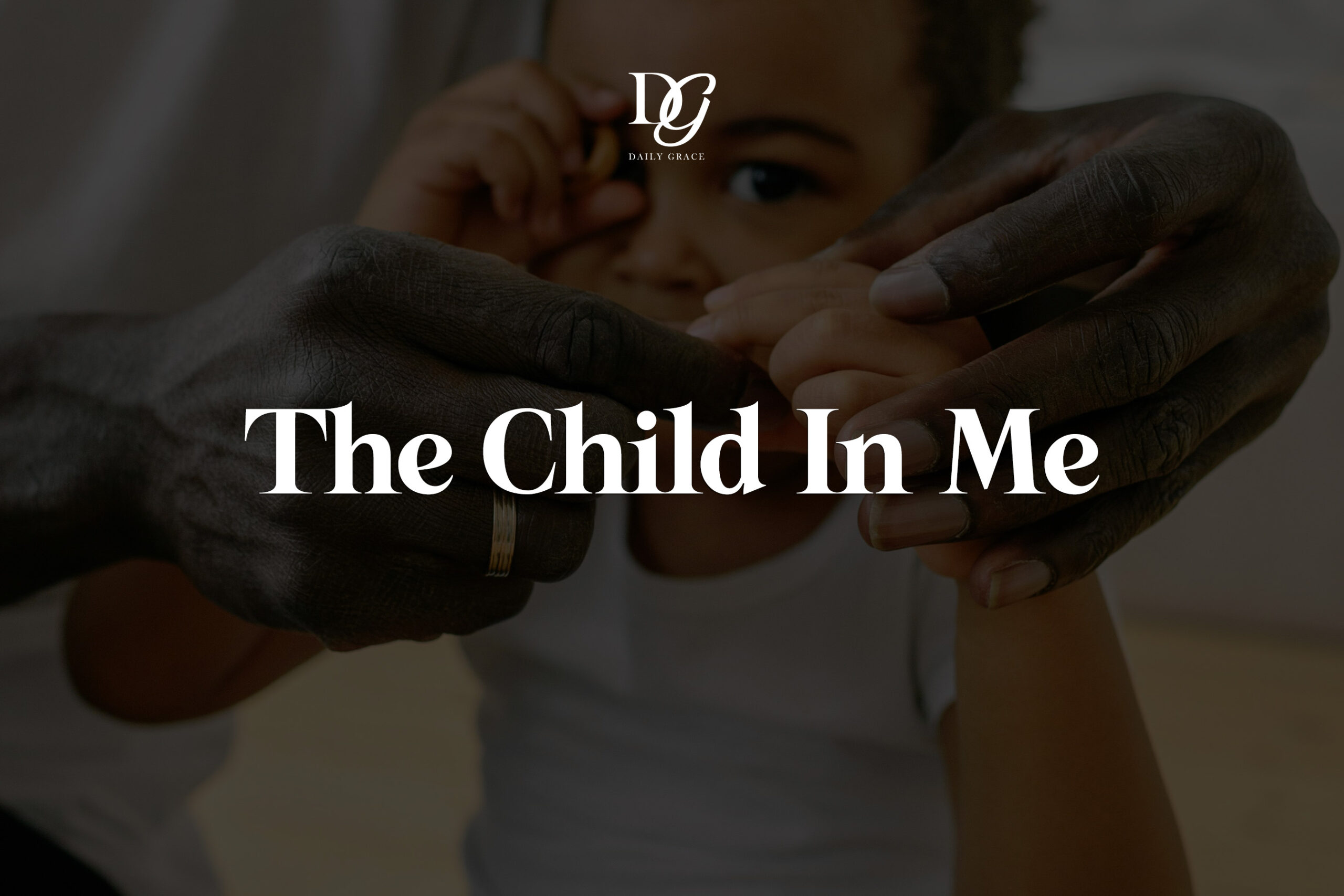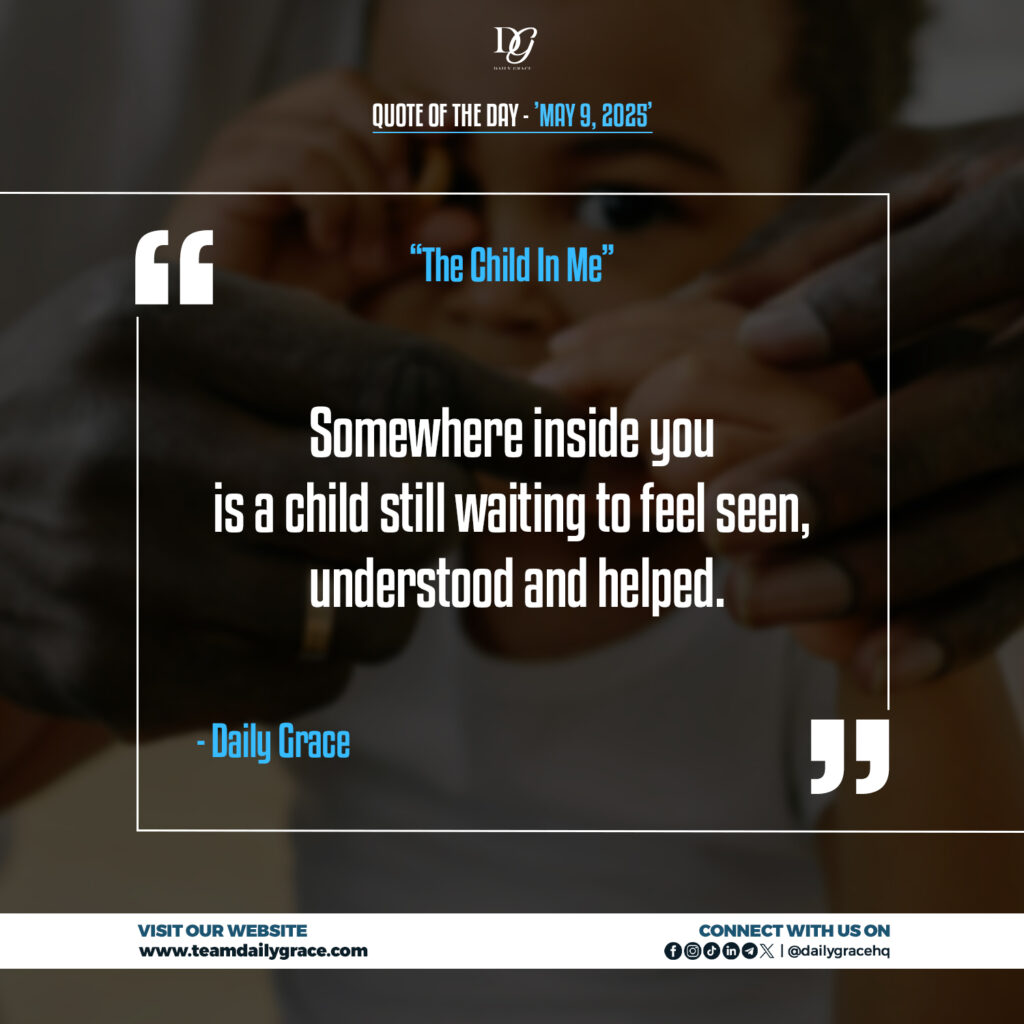Inspiring Change Every Day with Grace
The Child In Me

Some of the strongest beliefs we hold about ourselves were not chosen, they were handed to us before we could even speak for ourselves. I mean, you don’t wake up one day and decide you’re not good enough. You learn it in moments you can’t always remember, from people you didn’t choose, and in places that were supposed to feel safe.
Maybe it was how a parent always criticized and never praised you. Maybe it was the way teachers compared you to others. Or how someone laughed when you tried something new. It could even be in what they didn’t say; silence can be just as shaping as words.
The mind of a child is like a sponge, but more than that, it’s like wet cement. Whatever gets written into it early tends to harden with time. We’re wired to absorb and adapt to our environment because survival once depended on it.
So, when love was inconsistent, we might’ve started believing we weren’t lovable. When mistakes were punished harshly, we started fearing failure. When achievements were ignored, we learned to stay small. These lessons don’t always scream; sometimes they whisper into our adult lives; into our relationships, our careers, our self-talk.
That quiet voice that says, “You’re not smart enough,” or “You always mess things up”? It might not be yours. It could be an echo of an authority figure from your past. The fear that people will leave you if you’re too much or too little? That could be a story written about childhood abandonment or emotional neglect.
These beliefs follow us, not because we want them to, but because they’ve become familiar, and we mistake familiarity for truth.
Healing begins when we realize that we’re still living by rules we never agreed to. But to get there, we must be willing to revisit the roots. Not to dwell in the past, but to understand it. You can’t change the story if you don’t know how it was written. You need to ask the hard questions with bravery: Who taught me to see myself this way? What moments shaped this belief I carry?
Even today, many of us wear masks built in childhood. The overachiever mask. The people-pleaser mask. The tough-one mask. They helped us survive, but now they get in the way.
Unlearning them takes time and intentionality. It’s not a one-time realization, but a daily practice of replacing old narratives with new truths. Therapy helps. Journaling helps. Real conversations with people who see your worth help. Reparenting yourself, and learning to give yourself what you never got, can change everything.
Sometimes, it’s in the smallest triggers that you realize the depth of it all. You forget to reply to a message and instantly feel guilty. You receive a compliment and don’t know what to do with it. You get feedback and take it personally. These are not random quirks. They are signs. Signs that something in you still believes you need to earn love, prove worth, or stay invisible to be safe.
You are not broken; you are becoming. And becoming often starts with unbecoming everything that never belonged to you. That journey starts in honesty. It starts with remembering. It starts with choosing, today, to look at your reflection with kinder eyes and to ask: Whose voice am I still listening to?
No Copyright infringement intended.
What’s one belief about yourself you now realize came from something someone said or did to you as a child?
Use the this link to share your story and experience anonymously https://gdpd.xyz/dailygrace
PS: Kindly Follow our WhatsApp Channel at https://whatsapp.com/channel/0029VawUlQGBPzjQXzs6fX2Q for more engaging content.

